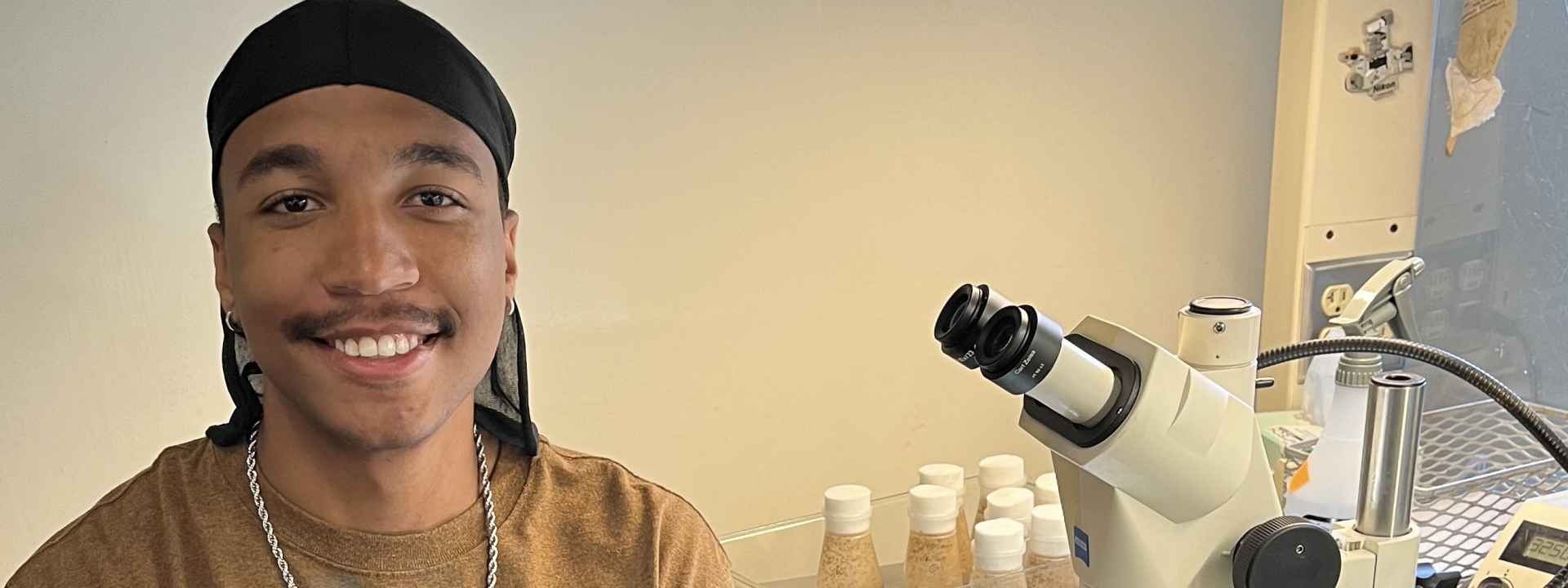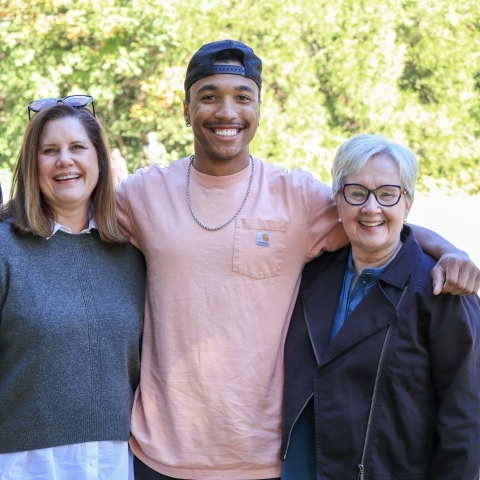In the complex world of neurology, where the mysteries of the central nervous system are unraveled, ARCS Scholar Nathan Anderson's MS research at the University of Oregon stands out as a unique blend of scientific inquiry and personal mission. Anderson’s work focuses on a protein called Vnd, a key player in developing neurons and glial cells in insects. These cells are vital for basic life functions.
His research aims to discover how stem cells in the central nervous system differentiate into the various cells necessary for an organism's survival. However, what makes Anderson’s work particularly relevant to multiple sclerosis (MS) is the vertebrate counterpart of Vnd—NKX2.2. This key protein increases around MS lesions and is crucial for the cells that myelinate neurons in the central nervous system.
By what Anderson describes as serendipity, his research into Vnd has become directly relevant to the pathology of MS. This connection between his scientific work and the disease he has been battling since he was 17 years old provides him with a unique perspective and motivation in his PhD journey.
Anderson’s connection with MS goes beyond his own diagnosis and research. Three years ago, he met ARCS Oregon member Lara Ogg at the chapter’s Scholar Picnic. Lara's mother, Caron Ogg, also an ARCS member, introduced them after discovering Nathan's background in neurology and his diagnosis of MS, a disease that also affects Lara.
Lara and Nathan have stayed in touch, exchanging tips on managing the disease, from diet and exercise to the latest research developments.
Living with a chronic illness like MS involves more than the visible symptoms. Anderson says the most challenging aspects are the constant fatigue and the resulting struggles that accompany the disease.
He acknowledges that it's difficult for those without chronic illness to fully understand these challenges, but he believes it's important to talk about them. By raising awareness, he hopes to foster a sense of empathy—not just for MS patients but for anyone living with a chronic illness.
Anderson says the support of people who understand MS has been crucial to his success in the PhD program. The encouragement he receives from friends like Lara, his mother in Idaho (who also has MS), and Caron, his "Oregon Mom," has helped him focus on research, even on days when making an impact in the field seems distant.
Lara says one of Nathan's quotes stands out: "MS is RUDE." This statement resonates with her, but she is equally inspired by his determination. Another favorite quote from Anderson is, “MS, I'm coming for you."
Anderson’s discovery that the protein he studied in fruit flies is the same one involved in MS lesions has given him renewed focus in his research. For Lara, knowing a scientist on the front lines of MS research provides hope. Anderson’s work, driven by both personal and professional motivations, holds the potential to make a meaningful impact on the lives of those affected by MS.
Anderson credits the ARCS award from the Oregon Chapter as “a great help by providing a community of caring individuals. While the financial relief is an obvious benefit, it is the constant contact with sponsors and administration of ARCS Oregon that has had the most impact on my own journey,” he explains.


